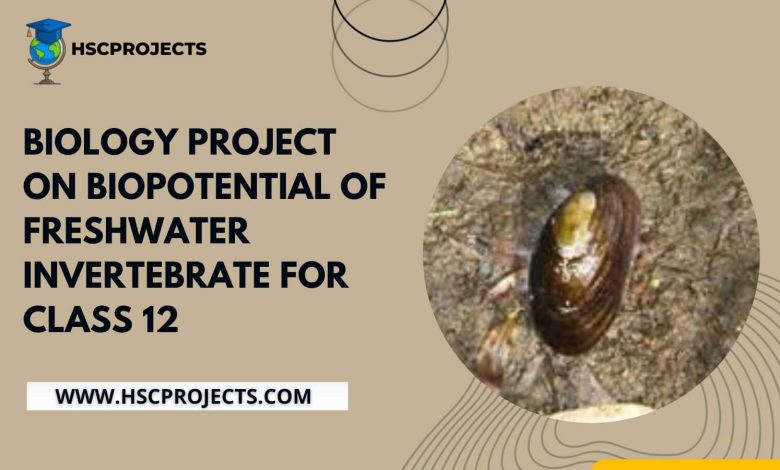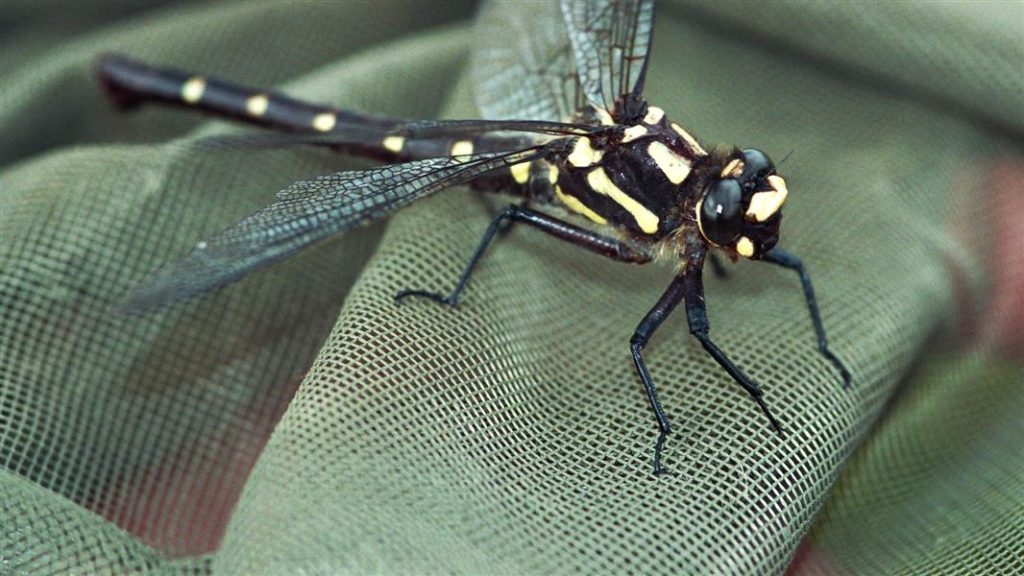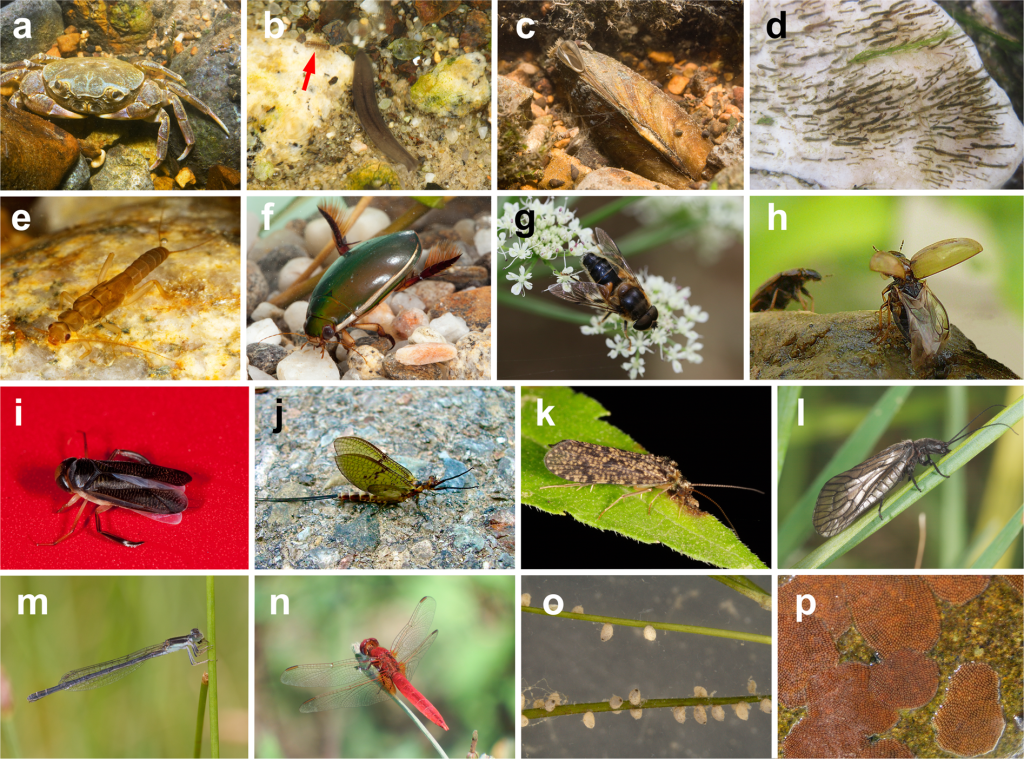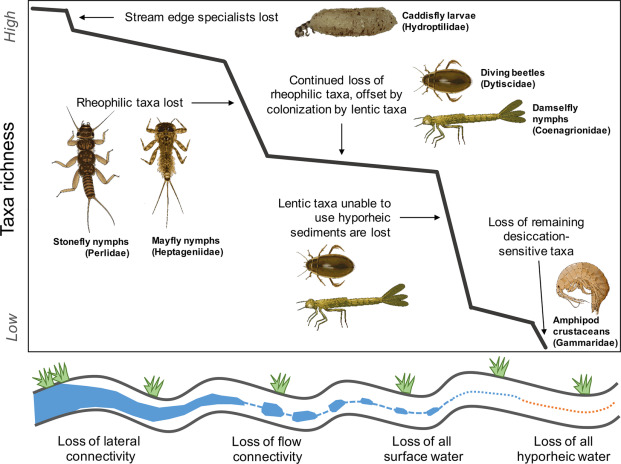
Biology Project On Biopotential Of Freshwater Invertebrates for Class 12
Acknowledgement:
I am deeply grateful to [Teacher’s Name], our Biology teacher, for their unwavering support and guidance throughout the duration of this project. Their expertise, knowledge, and dedication to our learning have been indispensable in shaping the research and ensuring its success. Their willingness to provide valuable insights and feedback has greatly enriched the project.
I would also like to extend my gratitude to my classmates and friends who have been an integral part of this project. Their cooperation, enthusiasm, and willingness to contribute have made the journey all the more enjoyable and rewarding. Their assistance in data collection, conducting experiments, and brainstorming ideas have significantly contributed to the quality of the project.
Furthermore, I would like to express my appreciation to the school administration for providing the necessary resources and facilities that made this project possible. Their support in terms of access to laboratory equipment, reference materials, and other research materials has been instrumental in the successful execution of the project.
Lastly, I would like to acknowledge the contributions of various researchers and authors whose work served as a foundation for this project. Their studies, publications, and scientific literature have provided valuable insights and served as a guiding light throughout the research process.
Once again, I extend my heartfelt thanks to everyone involved in this project. Your support, encouragement, and assistance have played a vital role in its completion, and I am truly grateful for your invaluable contributions.
Introduction:
Freshwater invertebrates are a fascinating and diverse group of organisms that inhabit freshwater ecosystems such as lakes, rivers, ponds, and wetlands. They include a wide range of species, from microscopic organisms like protozoa and rotifers to larger creatures like insects, mollusks, crustaceans, and worms. Despite their small size, these invertebrates play a crucial role in maintaining the ecological balance and health of freshwater ecosystems.
The concept of biopotential refers to the vast range of benefits and applications that organisms possess, and freshwater invertebrates are no exception. These organisms have evolved unique adaptations and biological features that make them highly valuable in various fields such as medicine, biotechnology, and environmental conservation.
In the realm of medicine, freshwater invertebrates have shown great potential as sources of bioactive compounds with pharmaceutical properties. Many of these organisms produce natural substances that can be utilized in the development of new drugs and treatments. For example, certain species of freshwater sponges produce bioactive compounds with anticancer properties, while some freshwater mollusks produce toxins that have potential applications in pain management and neurology.
Biotechnology is another field where freshwater invertebrates have significant biopotential. Their genetic makeup, physiological processes, and unique adaptations offer opportunities for biotechnological applications. For instance, the enzymes produced by certain aquatic invertebrates have been utilized in industrial processes, such as wastewater treatment and the production of biofuels.
Freshwater invertebrates also play a vital role in environmental conservation. As key components of the food web, they act as prey for larger organisms and contribute to nutrient cycling. Additionally, some species are used as bioindicators to assess water quality. Changes in their abundance, diversity, or behavior can indicate pollution levels, habitat degradation, or other environmental disturbances. By studying these organisms, we can gain insights into the health and functioning of freshwater ecosystems, helping to guide conservation efforts.
Understanding the biopotential of freshwater invertebrates is crucial not only for scientific exploration but also for our overall knowledge of the natural world. By unraveling the unique adaptations, physiological processes, and potential applications of these organisms, we can deepen our appreciation for their role in freshwater ecosystems and explore avenues for their practical use in various fields.
In this project, we aim to delve into the biopotential of freshwater invertebrates, exploring their adaptations, potential applications, and ecological significance. By shedding light on the remarkable capabilities and contributions of these organisms, we hope to foster a greater understanding and appreciation for the invaluable role they play in our environment and society.

Biology Project on Biopotential of Freshwater Invertebrates:
The world of freshwater invertebrates is incredibly diverse and encompasses a wide array of species, each with its unique characteristics, adaptations, and potential applications. The main objective of this biology project is to delve into the biopotential of freshwater invertebrates and gain a comprehensive understanding of their significance in various domains.
To begin with, this project aims to explore the unique characteristics and adaptations of freshwater invertebrates. These organisms have evolved fascinating features that enable them to thrive in freshwater environments. By studying their morphology, physiology, and behavior, we can unravel the intricate mechanisms and adaptations that allow them to survive and reproduce in different ecological niches. This exploration will provide valuable insights into the diversity and complexity of freshwater ecosystems and shed light on the evolutionary processes that have shaped these invertebrate species over time.
Furthermore, this project seeks to uncover the potential applications of freshwater invertebrates in different domains. These organisms possess remarkable biopotential that can be harnessed in fields such as medicine, biotechnology, and environmental conservation. For example, the secretion of bioactive compounds by certain freshwater invertebrates has shown promise in the development of novel drugs for human health. Additionally, the enzymes produced by these organisms have practical applications in various biotechnological processes, ranging from industrial applications to wastewater treatment. Understanding the specific attributes and properties that make these organisms valuable in different fields will open up avenues for further research and utilization.
By highlighting the biopotential of freshwater invertebrates, this project aims to emphasize the importance of studying and conserving these often overlooked organisms. Through scientific exploration, we can gain a deeper appreciation for their ecological roles, their contributions to ecosystem functioning, and the potential benefits they offer to human society. Moreover, this project serves as a reminder of the interconnectedness of all living organisms and the need to preserve the delicate balance of freshwater ecosystems.
Through comprehensive research, data collection, and analysis, this biology project will provide a comprehensive overview of the biopotential of freshwater invertebrates. By shedding light on their unique characteristics, adaptations, and potential applications, we hope to inspire further scientific inquiry, conservation efforts, and innovative approaches to utilize the biopotential of these remarkable organisms. Ultimately, this project aims to contribute to the body of knowledge surrounding freshwater invertebrates and raise awareness about their significance in the natural world.

Example:
One notable example that showcases the biopotential of freshwater invertebrates is the case of Daphnia, commonly known as water fleas. Daphnia are tiny crustacean-like organisms found in freshwater bodies such as lakes, ponds, and rivers. These organisms have been extensively utilized in toxicology studies as bioindicators to assess the quality and health of aquatic environments.
Daphnia are highly sensitive to changes in their surroundings, particularly the presence of pollutants or alterations in environmental conditions. As filter feeders, they obtain their food by filtering microscopic particles from the water. This feeding behavior exposes them to various contaminants and toxins present in the aquatic ecosystem. Therefore, any changes in the population dynamics or behavior of Daphnia can be indicative of the overall health and condition of the freshwater ecosystem.
Scientists and researchers have leveraged this unique characteristic of Daphnia to study the impact of pollutants on aquatic environments. By exposing Daphnia to different concentrations of toxins or pollutants, researchers can observe and measure their physiological responses, reproductive rates, and overall survival. These experiments provide valuable insights into the potential risks and effects of various contaminants on aquatic organisms, including other invertebrates, fish, and even humans.
Moreover, Daphnia’s importance extends beyond toxicology studies. They also serve as a crucial component of the food web in freshwater ecosystems. Being a primary consumer, they consume algae and other microscopic organisms, thereby regulating their population and maintaining the balance of the ecosystem. Any disruptions in the population dynamics of Daphnia can have cascading effects on other organisms within the food chain.
The example of Daphnia highlights the potential of freshwater invertebrates to serve as ecological indicators. By closely monitoring changes in their population, behavior, and physiological responses, scientists can gain valuable insights into the health and stability of aquatic ecosystems. This information is vital for making informed decisions regarding environmental management, conservation efforts, and pollution control.
The biopotential of freshwater invertebrates, as demonstrated by Daphnia, extends beyond ecological indicators. Other examples include the production of enzymes with industrial applications, the study of bioactive compounds with potential pharmaceutical uses, and their role in nutrient cycling and ecological processes within freshwater ecosystems.
By studying and understanding the biopotential of freshwater invertebrates like Daphnia, we can not only gain valuable insights into their ecological significance but also unlock their potential applications in various fields, contributing to scientific advancements, environmental conservation, and sustainable resource management.
Importance of Biology Project on Biopotential of Freshwater Invertebrates:
Studying the biopotential of freshwater invertebrates holds significant importance for multiple reasons. By exploring their unique characteristics, adaptations, and potential applications, we can deepen our understanding of the intricate web of life within freshwater ecosystems. The importance of such a project can be summarized as follows:
- Enhancing Understanding of Species Diversity and Interconnections:
Freshwater ecosystems are incredibly diverse, housing a multitude of species, including a wide array of invertebrates. These organisms occupy various ecological niches and play vital roles in the functioning of these ecosystems. Studying their biopotential provides valuable insights into the intricate interconnections and ecological relationships within freshwater communities. It helps us comprehend the diversity of species, their ecological roles, and the complex web of interactions that sustain these ecosystems.
- Shedding Light on Potential Applications:
Freshwater invertebrates possess unique adaptations and biological features that make them valuable resources in fields such as medicine, agriculture, and environmental monitoring. Investigating their biopotential enables us to uncover potential applications of these organisms in these domains. For example, certain species may produce bioactive compounds with therapeutic properties, while others may exhibit traits useful for pest control in agriculture. Understanding the potential applications of freshwater invertebrates broadens our knowledge and opens up avenues for innovative research and practical utilization.
- Emphasizing the Importance of Ecosystem Conservation:
Freshwater ecosystems are among the most threatened habitats on Earth. They face numerous challenges such as pollution, habitat loss, climate change, and invasive species. By studying the biopotential of freshwater invertebrates, we recognize their ecological significance and the pivotal role they play in maintaining the balance and health of these fragile ecosystems. This understanding reinforces the importance of conserving these ecosystems and the biodiversity they support. It underscores the need for sustainable management practices, conservation efforts, and policies to safeguard freshwater environments and their valuable inhabitants.
- Implications for Environmental Monitoring and Assessment:
Freshwater invertebrates are sensitive to changes in their environment, making them excellent indicators of ecosystem health. By studying their population dynamics, behavior, and responses to environmental stressors, we can gain insights into the quality of freshwater ecosystems. Monitoring these organisms helps assess water pollution levels, habitat degradation, and overall ecosystem health. This information is crucial for making informed decisions regarding environmental management, pollution control measures, and the protection of water resources.
In conclusion, the biology project on the biopotential of freshwater invertebrates holds immense importance. It enhances our understanding of species diversity, reveals potential applications in various fields, emphasizes the need for ecosystem conservation, and contributes to environmental monitoring and assessment. By exploring the biopotential of these remarkable organisms, we can deepen our knowledge of freshwater ecosystems and work towards their preservation and sustainable use, ensuring the continued health and vitality of these valuable habitats.

How Can We Make It Happen?
To explore the biopotential of freshwater invertebrates, we can follow a systematic approach:
Research and select specific freshwater invertebrates of interest.
Collect data on their taxonomy, anatomy, physiology, and ecological roles.
Conduct experiments and observations to identify their unique adaptations and behaviors.
Analyze existing scientific literature and studies on their potential applications.
Collaborate with experts in relevant fields to gain insights into their practical uses.
Three Pillars:
The project on biopotential of freshwater invertebrates can be built upon three key pillars:
Taxonomy and Ecological Roles: Understanding the taxonomy and ecological roles of different freshwater invertebrates helps in comprehending their significance in the ecosystem and their potential applications.
Adaptations and Physiology: Investigating the adaptations and physiological mechanisms of these organisms provides insights into their survival strategies and potential benefits in various fields.
Practical Applications: Exploring the practical applications of freshwater invertebrates contributes to advancements in medicine, biotechnology, and environmental conservation.
Conclusion:
In conclusion, the biology project on the biopotential of freshwater invertebrates offers an exciting and enriching opportunity to explore the diverse world of these organisms and uncover their potential contributions to science and society. Through the study of their taxonomy, adaptations, and practical applications, we can deepen our understanding of freshwater ecosystems and make significant strides towards their preservation and sustainable management.
Freshwater invertebrates, with their remarkable adaptations and biological features, hold immense biopotential that extends across various fields. This project serves as a gateway to delve into their fascinating world, shedding light on their unique characteristics and the applications they offer. By studying their taxonomy, we can unravel the incredible diversity of species within freshwater ecosystems and the interconnectedness of these organisms.
Moreover, by exploring the adaptations of freshwater invertebrates, we gain insights into their strategies for survival in different ecological niches. Understanding their adaptations helps us appreciate their resilience and their role in maintaining the delicate balance of freshwater ecosystems. Additionally, this project highlights the potential applications of these organisms in fields such as medicine, biotechnology, and environmental monitoring. From producing bioactive compounds with pharmaceutical properties to serving as ecological indicators for water quality assessment, freshwater invertebrates offer valuable resources for scientific advancements and environmental conservation.
By conducting this project, we are not only expanding our knowledge but also emphasizing the importance of preserving and sustainably managing freshwater ecosystems. These ecosystems face numerous threats, including pollution, habitat loss, and climate change. Recognizing the biopotential of freshwater invertebrates raises awareness about their ecological significance and highlights the need for conservation efforts to protect these invaluable habitats.
In summary, the biology project on the biopotential of freshwater invertebrates serves as a gateway to explore the intricate world of these organisms. It allows us to appreciate their diversity, adaptations, and potential applications in various fields. By broadening our understanding of freshwater ecosystems and their inhabitants, we can contribute to their preservation, sustainable use, and the advancements of scientific knowledge. This project opens up new avenues of exploration and underscores the importance of valuing and protecting the biopotential of freshwater invertebrates.
Certificate of Completion
[Student’s Name][Class/Grade Level]This is to certify that I, [Student’s Name], a [Class/Grade Level] student, have successfully completed the project on “Biology Project On Biopotential Of Freshwater Invertebrate For Class 12.” The project explores the fundamental principles and key aspects of the chosen topic, providing a comprehensive understanding of its significance and implications.
In this project, I delved into in-depth research and analysis, investigating various facets and relevant theories related to the chosen topic. I demonstrated dedication, diligence, and a high level of sincerity throughout the project’s completion.
Key Achievements:
Thoroughly researched and analyzed Biology Project On Biopotential Of Freshwater Invertebrate For Class 12.
Examined the historical background and evolution of the subject matter.
Explored the contributions of notable figures in the field.
Investigated the key theories and principles associated with the topic.
Discussed practical applications and real-world implications.
Considered critical viewpoints and alternative theories, fostering a well-rounded understanding.
This project has significantly enhanced my knowledge and critical thinking skills in the chosen field of study. It reflects my commitment to academic excellence and the pursuit of knowledge.
Date: [Date of Completion]Signature: [Your Signature] [School/Institution Name][Teacher’s/Examiner’s Name and Signature]
In order to download the PDF, You must follow on Youtube. Once done, Click on Submit
Follow On YoutubeSubscribed? Click on Confirm
Download Biology Project On Biopotential Of Freshwater Invertebrates for Class 12 PDF






